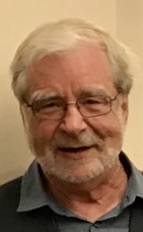A Civilian’s Conditions
- Marvin T. Brown

- Feb 17, 2022
- 3 min read
Updated: Mar 28, 2023

Much of A Climate of Justice is about civilians. I learned about the significance of civilians in thinking about creating a climate of justice. The reason is not all that complicated: a climate of injustice was created by the enslavement, massacre, lynching, and the terrorizing of civilians. I doubt if we can create a climate of justice without them.
How does someone become a civilian? One’s status as a civilian does not depend on class, race, gender, education, or other social distinctions. Part of the power of the notion of a civilian is that, strictly speaking, it is not a social category, but a civic one. I think that will become clear when we get to its broadest meaning. Let’s start, however, with the term’s most common location and then explore other locations with similar conditions.
Civilians in the World of War
Civilians are non-combatants. They are not in the fight, so to speak. At the same time, combatants are not civilians. There is nothing civil about killing others, even enemies, when your commander orders it. Soldiers are governed by a military code of conduct rather than any civil code. We may have a civilian government rather than a military dictatorship, but when our Presidents take on the role of “Commander-in-Chief,” their commands are military, not civil.
Even though “civilians” have been seen as non-combatants in war, they have not been seen as non-targets. Just the opposite. As Roxanne Dunbar Ortiz has documented in her book, An Indigenous People’s History of the United States, the killing of civilians—from Wounded Knee to Vietnam—has been part of our military’s strategy. In response to the massive slaughter of civilians in WW II, in 1949, the International Committee of the Red Cross developed the Geneva Protocol for the protection of civilians that most nations have now signed. For the first time, at least in theory, civilians are protected by the rule of law. Violations of this law, however, have seldom been prosecuted. Still, even in the world of war, civilians now have the right to protection. So, in the world of war, we can say that the conditions of civilians are that they are vulnerable, cannot protect themselves, and should be protected by the rule of law. These conditions occur not only in war, but also in times of economic despair.
Civilians in the World of Economic Despair
Perhaps the most famous non-military case of civilian protection was the Depression of the 1930s, when the “Civilian Conservation Corps” was created for unemployed men ages 17 to 23.5. These men (this was the 1930’s) and their families were vulnerable, like civilians in the world of war, and they could not protect themselves and their families from hunger and depression. The government provided them protection through various programs that gave them paid work, which not only helped them, but also the country. Whereas the Geneva Protocol for the protection of civilians limited military aggression toward non-combatants—do not do harm—the Civilian Conversation Corps provided resources to vulnerable people—do some good. It expanded the implied civil rights of civilians to include not only the right to protection, but also the right to provision.
We can recognize civilians today in different social worlds—from public health care to urban environments—who are vulnerable, cannot protect themselves, and rely on the rule of law. Given this definition of the conditions of civilians, it’s not that difficult to locate them in both our colonial past and our environmental future.
Civilians in our Colonial past
Our “success” as a colonial, settler nation depended on the appropriation of Indigenous people’s land, which not only destroyed Indigenous communities, but also replaced the Indigenous people’s sacred relationship with the Earth with a commercial relationship. The Earth became a thing to exploit rather than a living provider to honor. The Earth, in a sense, lost its protectors. The mountains, streams, forests, plains became as vulnerable to exploitation as the people who had protected them. In a sense, the Earth itself has suffered from the climate of injustice that has allowed so much misery for generations of civilians. To switch to a climate of justice, we would need to apply the laws that limit aggression in the world of war to the world of the natural environment. This is especially true when we turn to civilians in our environmental future.
Civilians in our Environmental Future
In terms of our planet’s future, our children and grandchildren face the same condition as civilians: they are vulnerable, unable to protect themselves, and rely on the rule of law. We could also say, they rely on our civil government to develop and implement policies that protect the Earth from destruction. They rely on us, in other words, to allow their claims for protection to create a civic space that is not subservient to military commercial, or technological interests, but to the foundation for democracy: a climate of justice.

Comments